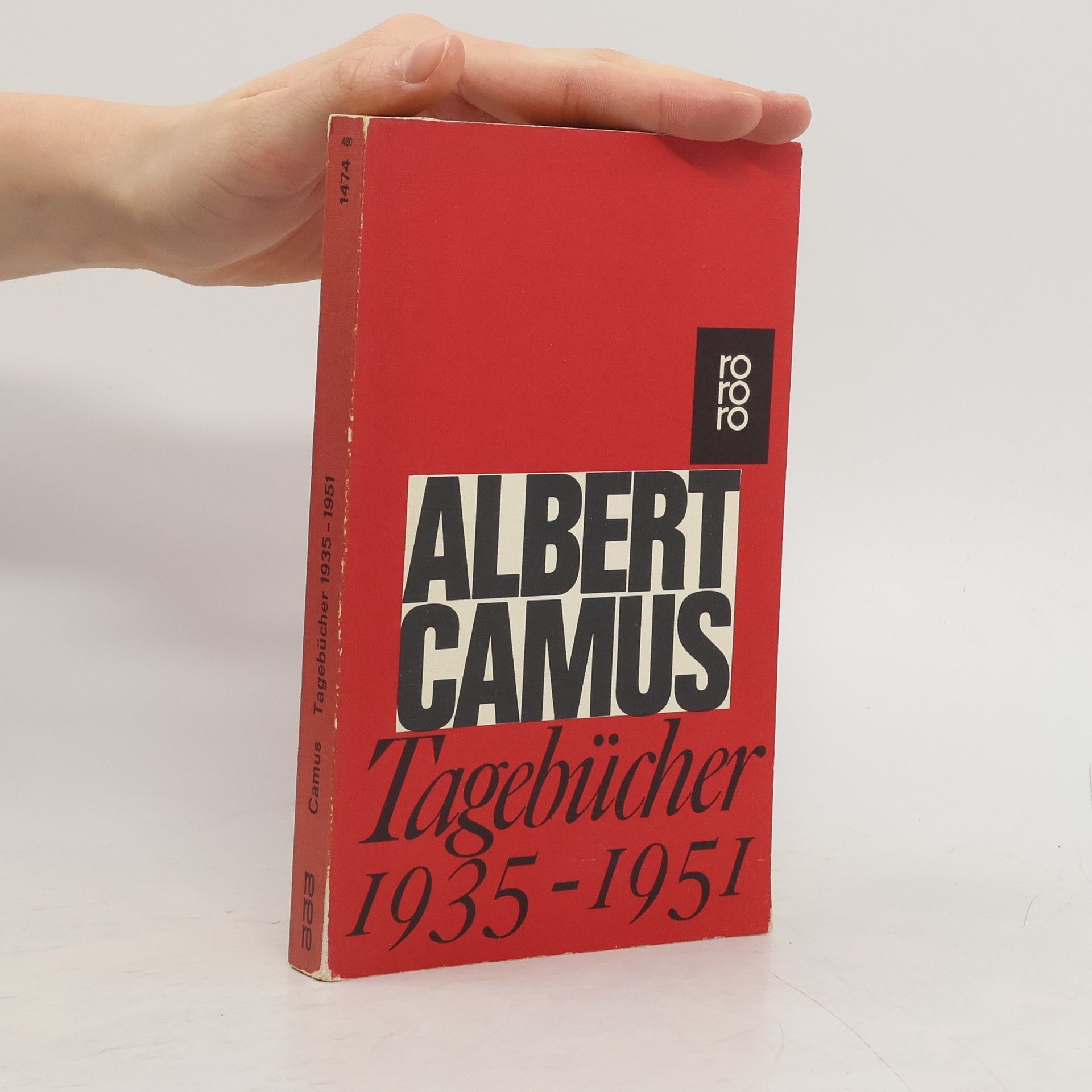From 1935 until his death, Albert Camus kept a series of notebooks to sketch out ideas for future works, record snatches of conversations and excerpts from books he was reading, and jot down his reflections on death and the horror of war, his feelings about women and loneliness and art, and his appreciations for the Algerian sun and sea. These three volumes, now available together for the first time in paperback, include all entries made from the time when Camus was still completely unknown in Europe, until he was killed in an automobile accident in 1960, at the height of his creative powers. In 1957 he had been awarded the Nobel Prize for Literature. A spiritual and intellectual autobiography, Camus' Notebooks are invariably more concerned with what he felt than with what he did. It is intriguing for the reader to watch him seize and develop certain themes and ideas, discard others that at first seemed promising, and explore different types of experience. Although the Notebooks may have served Camus as a practice ground, the prose is of superior quality, which makes a short spontaneous vignette or a moment of sensuous beauty quickly captured on the page a small work of art.Here is a record of one of the most unusual minds of our time.
Notizbücher Reihe
Diese Reihe bietet einen einzigartigen Einblick in den Geist eines der bedeutendsten Denker des 20. Jahrhunderts. Die Aufzeichnungen enthalten Skizzen für zukünftige Werke, Lesefrüchte und tiefe persönliche Reflexionen. Leser können die Entwicklung von Ideen und Themen sowie die Meditationen des Autors über Leben, Tod und Kunst verfolgen. Es ist ein faszinierender, intimer Einblick in einen kreativen Prozess.




Empfohlene Lesereihenfolge
From 1935 until his death, Albert Camus kept a series of notebooks to sketch out ideas for future works, record snatches of conversations and excerpts from books he was reading, and jot down his reflections on death and the horror of war, his feelings about women and loneliness and art, and his appreciations for the Algerian sun and sea. These three volumes, now available together for the first time in paperback, include all entries made from the time when Camus was still completely unknown in Europe, until he was killed in an automobile accident in 1960, at the height of his creative powers. In 1957 he had been awarded the Nobel Prize for Literature. A spiritual and intellectual autobiography, Camus' Notebooks are invariably more concerned with what he felt than with what he did. It is intriguing for the reader to watch him seize and develop certain themes and ideas, discard others that at first seemed promising, and explore different types of experience. Although the Notebooks may have served Camus as a practice ground, the prose is of superior quality, which makes a short spontaneous vignette or a moment of sensuous beauty quickly captured on the page a small work of art.Here is a record of one of the most unusual minds of our time.
Tagebuch 3. März 1951 - Dezember 1959
- 379 Seiten
- 14 Lesestunden
Treue führt in den Abgrund, Untreue ins Nichts. Erst drei Jahrzehnte nach seinem Unfalltod erschienen die Tagebuchaufzeichnungen Albert Camus ́ aus seinen letzten neun Jahren. Sie geben nicht nur Auskunft über sein Werk und seine Biographie, seine Lektüre und seinen historischen Bruch mit Sartre. Die Einsamkeit, in der das Todesmotiv immer mitschwingt nimmt das Ausmaß einer psychischen Gefährdung an, und ein geheimes Leitmotiv bricht sich in Notizen Bahn - die Unfähigkeit, zu lieben.
Dazugehörige Bücher
"Wert haben oder keinen Wert haben. Schöpferisch sein oder nicht. Im ersten Fall ist alles gerechtfertigt. Alles, ohne Ausnahme. Im zweiten Fall herrscht vollkommene Absurdität. Bleibt die Wahl des ästhetischen Selbstmords: Heirat + 40 Stunden oder Revolver." Werkstattaufzeichnungen, Gedankenskizzen, Entwürfe und Notizen - ein eindrucksvolles Tagebuch und ein authentisches Stück Biographie.